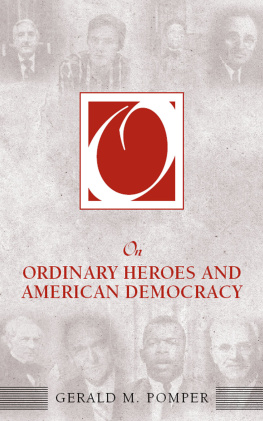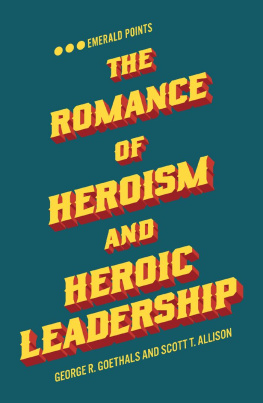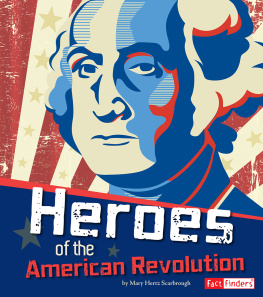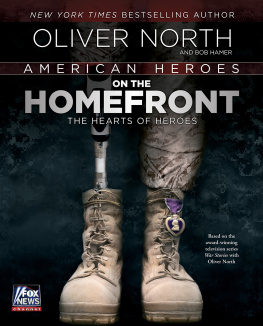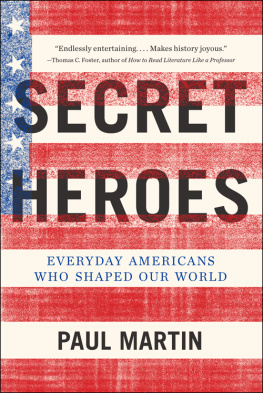ON ORDINARY HEROES AND AMERICAN DEMOCRACY
ON POLITICS
L. Sandy Maisel, Series Editor
On Politics is a new series of short reflections by major scholars on key subfields within political science. Books in the series are personal and practical as well as informed by years of scholarship and deliberation. General readers who want a considered overview of a field as well as students who need a launching platform for new research will find these books a good place to start. Designed for personal libraries as well as student backpacks, these smart books are small format, easy reading, aesthetically pleasing, and affordable.
Titles in the Series
On Foreign Policy, Alexander L. George
On Thinking Institutionally, Hugh Heclo
On Ordinary Heroes and American Democracy, Gerald M. Pomper
GERALD M. POMPER
ON ORDINARY HEROES AND AMERICAN DEMOCRACY
PHOTO CREDITS: Page 33: Peter Rodino Archives, Law Library, Seton Hall University; Page 61: L. Tom Perry Special Collections, Harold B. Lee Library, Brigham Young University; Page 87: American Memory Collection, Prints and Photographs Division, Library of Congress; Page 111: Courtesy of Judge William Wayne Justice; Page 137; Department of Health and Human Services. New York World-Telegram and Sun Collection, Print and Photographs Division, Library of Congress; Page 161: From a painting by Jared Bradley Flagg (1861), in Frederick G. Harrison, Biographical Sketches of Preeminent Americans (E. W. Walker Co., 1892); Page 185: The Ida M. Tarbell Collection, Lawrence Lee Pelletier Library, Allegheny College; Page 213: U.S. News and World Report Collection, Prints and Photographs Division, Library of Congress.
First published 2007 by Paradigm Publishers
Published 2016 by Routledge
2 Park Square, Milton Park, Abingdon, Oxon OX14 4RN
711 Third Avenue, New York, NY 10017, USA
Routledge is an imprint of the Taylor & Francis Group, an informa business
Copyright 2007, Taylor & Francis.
All rights reserved. No part of this book may be reprinted or reproduced or utilised in any form or by any electronic, mechanical, or other means, now known or hereafter invented, including photocopying and recording, or in any information storage or retrieval system, without permission in writing from the publishers.
Notice:
Product or corporate names may be trademarks or registered trademarks, and are used only for identification and explanation without intent to infringe.
Library of Congress Cataloging-in-Publication Data
Pomper, Gerald M.
On ordinary heroes and American democracy / Gerald M. Pomper.
p. cm. (On politics)
Originally published under title: Ordinary heroes & American democracy. New Haven : Yale University Press, c2004.
Includes bibliographical references and index.
ISBN-13: 978-1-59451-391-6 (hc)
ISBN-10: 1-59451-391-0 (hc)
1. PoliticiansUnited StatesBiography. 2. Political activistsUnited StatesBiography. 3. JudgesUnited StatesBiography. 4. United StatesOfficials and employeesBiography. 5. JournalistsUnited StatesBiography. 6. HeroesUnited StatesBiography. 7. United StatesBiography. 8. United StatesPolitics and governmentAnecdotes.
9. DemocracyUnited StatesHistoryAnecdotes. I. Pomper, Gerald M. Ordinary heroes & American democracy. II. Title.
E176.P778 2007
973.09'9dc22
[B]
2006035978
Designed and Typeset in ITC Galliard by Straight Creek Bookmakers.
ISBN 13 : 978-1-59451-391-6 (pbk)
CONTENTS
This book praises seemingly ordinary men and women who have advanced heroic causes within the institutions of U.S. politics.
In seeking to understand these persons and their work, I employ diverse methods. As a political scientist, I use the techniques and scholarship of my discipline to study the formal bodies and political influences of U.S. government. I also attempt to employ the techniques of history and literature, although I do not claim to be a professional in either field. The sketches of the individuals included in this book are not full biographies, but I hope they are valid partial portraits, illuminating what Leon Edel has called the myths behind the individual, the inner myth we all create in order to live, the myth that tells us we have some being, some selfhood, some goal, something to strive for.
This work also reflects my personal experience as both a scholar and a teacher. I intend it to be not only a work of academic research but also a possible instrument of civic education. Whether in classrooms or beyond, I hope that readers will learn about the diverseand decentinstitutions of U.S. politics and the variedand goodpeople who serve the nation in those institutions. Neither the United States nor its government meets utopian ideals, but in my view they are worth both praise and the dedication we pay when we seek their improvement.
This book has existed in my thoughts for two decades. I owe its realization to many people, and now can thank them, however inadequately. Gordon Schochet has been especially helpful with his rare combination of caring and intellect. The work has greatly benefited from discussions over the years with Mike Aronoff, Robert Cohen, Fred Greenstein, John Hart, Irving Horowitz, Theodore Lowi, Maureen Moakley, George Schroepfer, Ed and Lynn Sternstein, Judith Temkin, Samuel Temkin, Daniel Tichenor, and Mike and Naomi Wish.
As the book came closer to reality, Dennis Bathory and Nancy Schwartz offered me their helpful comments and the opportunity to publish a preliminary chapter in a book celebrating the life of Wilson Carey McWilliams. Still teaching and learning, Carey died, too young, in 2005. He inspired all of us, and I hope some of his wisdom is reflected in this work.
When the project moved forward, I had the research assistance of talented undergraduates at Rutgers University on individual chapters, specifically Allison Ames (on Truman), Avram Fechter (Weed), Erika Sondahl (Watkins), and Laura Yorke (Kelsey). Rutgers, and especially its Eagleton Institute of Politics, also provided financial support, while Edith Saks and Joanne Pfeiffer proved to be extraordinary secretaries. At Yale University Press, which published the original edition, editors John Covell and John Kulka were encouraging and incisive in their criticisms. Pamela Holway and Heidi Downey provided expert copyediting.
For this new paperback edition, I have benefited greatly from the support, advice, and creativity of Paradigm Publishers, a new and innovative enterprise in the social sciences. I am particularly thankful for the leadership of Sandy Maisel and Jennifer Knerr.
Friends and colleagues who read these chapters provided the greatest intellectual contributionsand much emotional support. They have improved my knowledge, my writing, and my confidence. I am deeply appreciative of this consummate help from Milton Finegold, Amy Fried, Milton Heumann, Elizabeth Hull, Stanley Kelley, Ruth Mandel, Francesca Polletta, Alan Rosenthal, Patricia Sykes, and Marc Weiner. As readers will soon see, I gained both knowledge and inspiration from interviews with the persons among those portrayed in this book still living during the time of my research: Frances Kelsey, William Wayne Justice, John Lewis, and Peter Rodino. Congressman Rodino did depart from us in 2005; I will always be grateful to have come to know him as a public servant of grace, intellect, and admirable patriotism.

